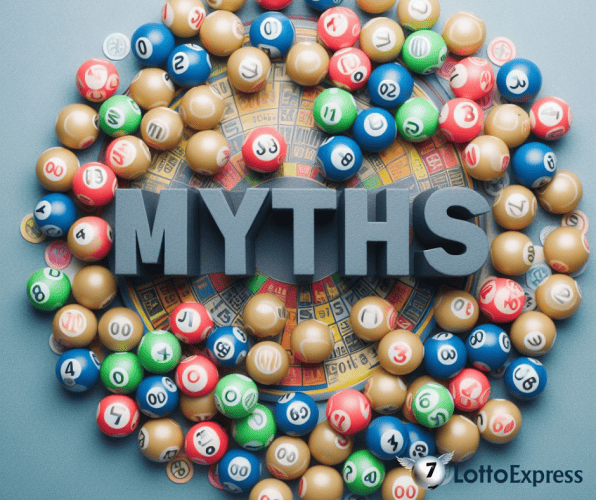When it comes to lottery myths, many players find themselves tangled in a web of misconceptions that can lead to misguided decisions. Despite the allure of striking it rich overnight, the truth behind winning the lottery is often masked by popular beliefs that can skew realistic expectations. Lotteries are inundated with common lottery myths that misinterpret lottery odds, and many people overlook crucial lottery statistics that could influence their playing strategies. Understanding the nuances of these lottery misconceptions is vital for anyone dreaming of that life-changing jackpot. In this blog post, we will uncover the truth behind these myths and equip you with the knowledge needed to approach lotteries intelligently.
Exploring the realm of lottery misconceptions, one encounters a plethora of false beliefs that can mislead players. These misconceptions often stem from societal attitudes toward gambling and a lack of clarity regarding how lottery systems operate. With so many myths surrounding the topic of winning the lottery, it is easy to understand why players might feel confused about their chances of success. It is essential to investigate the underlying assumptions that shape these fallacies, allowing players to separate fact from fiction. In doing so, we can foster a well-informed community that appreciates the lottery for what it truly is—a game of chance.
Unraveling the Truth: Lottery Myths vs. Reality
Lottery myths often paint a skewed picture of what it means to play these games of chance. One of the biggest misconceptions is that playing the lottery can lead to financial independence or stability. This mindset can lead individuals to spend beyond their means, investing in tickets with the false hope that they are just a few numbers away from leaving their financial worries behind. The cruel irony is that the odds of winning remain astronomically low, yet the allure of the jackpot can often cloud judgment, leading to poor financial decisions.
Additionally, the myth that certain numbers guarantee better odds, whether hot or cold, further distorts reality. In truth, lottery draws are independent events governed by chance, and the probability of any particular number being drawn does not change based on past results. Educating players on the statistical likelihood of winning can dispel these myths, allowing them to engage with the lottery from a more rational standpoint.
Understanding Lottery Odds: Key Insights Behind Winning
When it comes to the lottery, comprehending the odds is paramount. Contrary to popular belief, participating in smaller lotteries does not necessarily improve one’s chances of winning. Each lottery’s odds are fixed and defined by the total combination of numbers available, irrespective of the jackpot size. This realization is pivotal as it emerges that every lottery—no matter the prize money—presents a chance that is equally daunting. Often, players are lured into choosing flatteringly less famous lotteries with the mistaken belief that they have a better shot at winning.
By understanding lottery statistics, players can make informed decisions about where and how to spend their money. This includes recognizing that each ticket has the same probability of winning, whether it’s the grand Powerball jackpot or a regional draw with a smaller prize. Through education about odds and probabilities, potential lottery players can critically evaluate their expectations and approach the lottery as a form of entertainment rather than a solution to financial challenges.
Frequently Asked Questions
What are some common lottery myths that affect player perceptions and decisions?
Common lottery myths include the belief that certain numbers are luckier than others, that smaller jackpots provide better winning odds, and that the lottery functions as a form of taxation. These misconceptions can mislead players regarding the real odds of winning the lottery. Understanding the facts is crucial, as all lottery draws are independent events with uniformly distributed probabilities, and playing for fun rather than as an investment is recommended.
Do lottery statistics support the myth that certain numbers have a better chance of winning?
Lottery statistics do not support the myth that certain numbers have a better chance of winning. In reality, every lottery draw is completely random, meaning every combination of numbers has the same likelihood of being drawn regardless of past results. This reinforces the misconception that selecting frequently drawn numbers can increase odds, when in fact, betting on random numbers is just as effective.
| Key Point | Myth Description | Truth |
|---|---|---|
| Lotteries are a Form of Taxation | People believe lotteries serve as a tax affecting lower-income players. | Lottery funds support public projects and education, not simply tax mechanisms. |
| Certain Numbers are Luckier | Some believe choosing ‘hot’ or ‘cold’ numbers increases winning chances. | Each draw is random; no number combination is luckier than another. |
| Smaller Jackpots Mean Better Odds | Many think that smaller jackpots have better winning odds. | Odds are based on combinations, not jackpot size. They remain consistent. |
Summary
Lottery myths can significantly mislead potential players about the nature of lottery games. These misconceptions, if left unchallenged, can create unrealistic expectations and influence players’ decisions. Understanding the true facts about lotteries is vital for any prospective player. The myth that lotteries function as a form of taxation, for instance, obscures how funds are actually used, which is for community and educational programs. By recognizing that every number has an equally random chance of winning and that the size of the jackpot doesn’t alter the odds, players can foster a healthier relationship with lottery games. Ultimately, debunking these lottery myths not only empowers individuals to make informed choices but also ensures that playing the lottery remains a form of entertainment rather than a desperate gamble for wealth.
